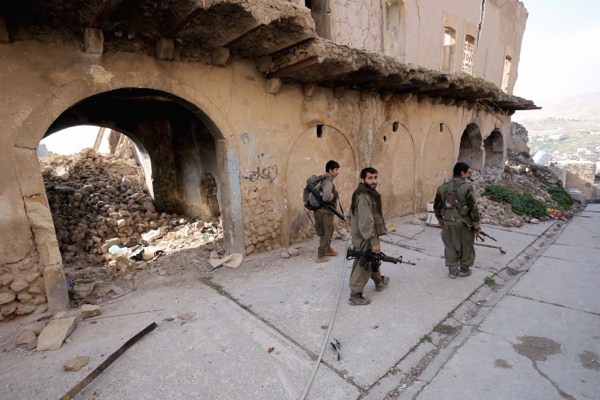The Iraqi Kurdistan Regional Government (KRG) and the Turkey-based Kurdistan Workers’ Party (PKK), which is considered a terrorist organization by the Turkish government, have exchanged harsh words in recent weeks over who has control over the strategically imporant city of Sinjar in northern Iraq. In an email interview, Jordi Tejel, a research professor in the international history department of the Graduate Institute of International and Development Studies in Geneva, discussed intra-Kurdish tensions.
WPR: How has the fight against the so-called Islamic State (IS) affected relations between the KRG and the PKK—and the Democratic Union Party (PYD), the Syrian affliliate of the PKK?
Jordi Tejel: At first, neither the PYD nor the KRG felt threatened by IS. The picture changed altogether after the sudden IS advance toward Irbil, the capital of the KRG, in August 2014. Although Irbil did not fall, IS was able to seize several Kurdish towns, including Sinjar, due to the unexpected disintegration of the peshmerga, the military force of Iraqi Kurdistan. Against this backdrop, the PYD’s armed wing intervened in Sinjar, allegedly to protect the Yazidis there, given the peshmerga’s failure to do so. Weakened by this turn of events, KRG President Massoud Barzani had to abandon any attempt to organize a referendum on Kurdish independence in northern Iraq.

